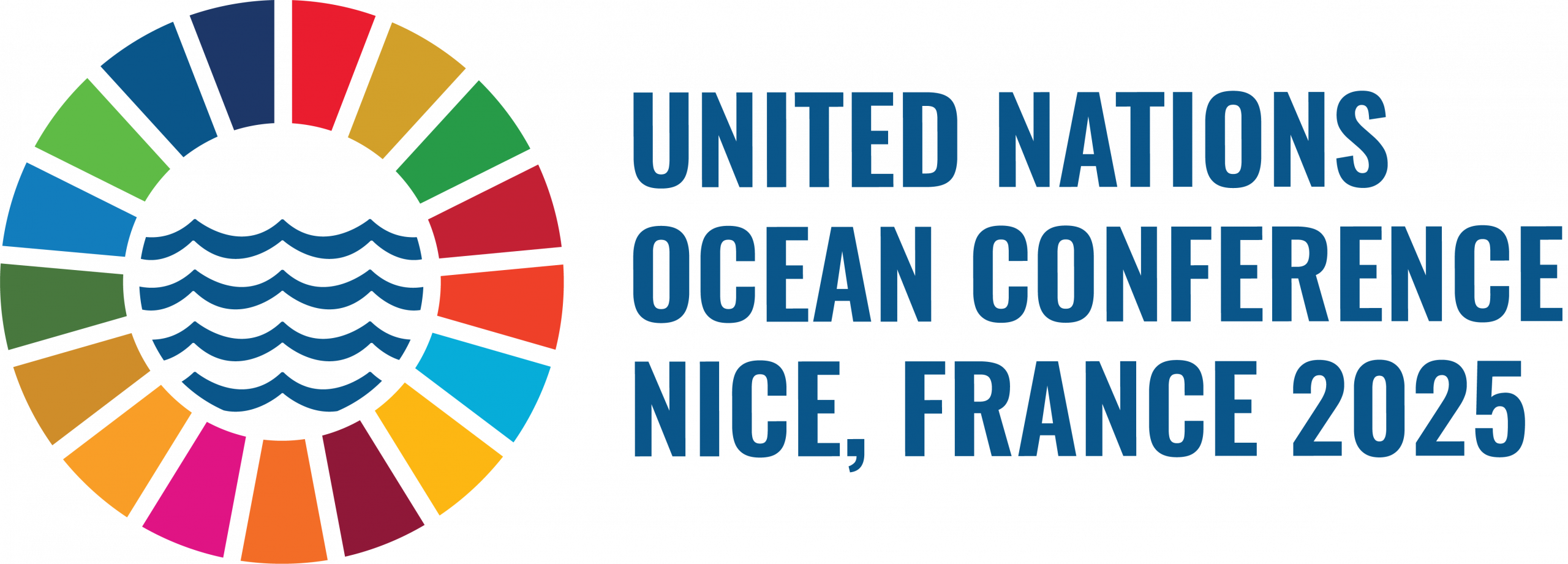For Sustainable Ocean-Based Economies
Call to Action
for Sustainable Ocean-Based Economies

Oceans: The Lifeblood of Our Planet – Introduction
Our oceans play a crucial role in regulating the climate, producing oxygen, and sustaining biodiversity. They are essential to life on Earth. Beyond that, oceans serve as a lifeline for billions of people. They provide vital food resources through fisheries, aquaculture, and diverse marine ecosystems.
However, these activities, while supporting human life, also endanger our oceans. It is imperative to address this crisis with immediate urgency. Sustainable Development Goal 14 (SDG 14), which focuses on conserving and sustainably using our oceans, seas, and marine resources, demands swift and decisive action.
To address these urgent challenges, we must adopt a comprehensive approach that combines strategic goals, innovative solutions, and global cooperation.
The Growing Threats to Our Oceans
Human activities, while essential for survival, are severely harming our oceans, leading to serious challenges such as coastal eutrophication, harmful algal blooms, and dead zones.
We must act now to protect these crucial ecosystems on which so many lives depend. Nearly 40% of the global population lives within one hundred kilometers of the coast. As a result, ocean degradation has a profound impact, threatening not only the environment and the well-being of coastal communities but also global food security, economic stability, and ultimately, the entire world population.
Confronting these threats requires clear strategic objectives that guide our efforts towards ocean preservation and global prosperity.
The Urgency of Addressing Ocean Degradation
Pollution from chemicals and plastics severely harms marine life and contaminates food chains. Major rivers contribute to coastal ecosystems but are also heavily impacted. By 2060, we are on track to triple the amount of plastic waste, while recycling efforts remain alarmingly low, with less than 10% of plastics being recycled. Microplastics have already infiltrated every environment, including our own bodies.
Overfishing and global warming continue to exacerbate these problems, putting marine ecosystems and global food security at severe risk.
We must take urgent action to address these known threats, especially since over 80% of the ocean remains unexplored and may harbor additional, unforeseen challenges that could further impact marine ecosystems and global food security.
Addressing these challenges requires a multifaceted approach that integrates international law, innovative technologies, and global collaboration.
Strategic Goals for Ocean Preservation and Global Prosperity – Objectives
“Ending the ocean emergency is a race we must win, and working as one, it is a race we can win,” said United Nations Secretary-General António Guterres at The Ocean Race Summit Mindelo, held 2023 in Cabo Verde.
Our Vision for Ocean Sustainability
As a globally recognized non-governmental organization, the Diplomatic Council strives to promote peace, facilitate international trade, and foster sustainable development by addressing the urgent challenges facing our oceans.
We are committed to eradicating plastic pollution by integrating plastics into a circular economy and promoting sustainable marine industries. This involves reducing plastic waste at its source, enhancing recycling efforts, and encouraging the development and use of biodegradable alternatives to ensure that plastic waste does not continue to harm our oceans.
Achieving these objectives demands the integration of international laws and the adoption of sustainable practices on a global scale.
Integrating International Laws and Sustainable Practices
In addition to addressing plastic pollution, we advocate for the robust implementation of international laws such as the United Nations Convention on the Law of the Sea (UNCLOS, 1982) and the Biodiversity Beyond National Jurisdiction (BBNJ, 2023) Treaty . UNCLOS regulates ocean use, including territorial waters and environmental protection, while BBNJ focuses on conserving marine biodiversity beyond national jurisdictions. These legal frameworks are essential for enforcing international regulations, particularly against illegal fishing, and for ensuring that marine resources are managed sustainably.
Our approach also includes promoting aquaculture as a sustainable source of food, thereby contributing to global food security while reducing the pressure on wild fish populations.
Innovative approaches and strong partnerships are crucial for driving meaningful action beyond legal frameworks.
Supporting Small Island Developing States
The Diplomatic Council recognizes the urgent necessity to address the severe impacts of climate and ocean degradation, particularly on Small Island Developing States (SIDS) in regions like the Caribbean, Pacific, and Indian Ocean. These nations are highly vulnerable to natural disasters such as cyclones, floods, and sea-level rise, which are exacerbated by climate crisis.
With only 39% of SIDS currently equipped with a multi-hazard early warning system, it is imperative to implement these systems swiftly to protect lives and livelihoods. Furthermore, we support innovative approaches that ensure SIDS can access debt relief and concessional finance, enabling them to recover and build back stronger after disasters.
To support these vulnerable communities, we must leverage technology and global partnerships to build resilience and drive sustainable action.
Innovative Approaches and Global Partnerships for Action – Methodology
The Diplomatic Council’s strategy involves engaging a wide range of stakeholders, including diplomats, business leaders and scientific experts. We leverage existing tools and innovative technologies to support ocean conservation and sustainable use. We also promote technical initiatives and raise public awareness.
Our commitment to innovation and collaboration lays the groundwork for protecting vulnerable communities and preserving marine life.
Leveraging Technology for Ocean Conservation
We are therefore committed to accelerating the renewable energy revolution by promoting green maritime transport technologies such as electric and zero-emission maritime transport.
Additionally, we observe the growth of the offshore wind industry, which is projected to experience a compound annual growth rate (CAGR) of 12.01% during the forecast period of 2024-2032, according to Market Research Future’s analysis of the Global Offshore Wind Market.
The Diplomatic Council relies on cutting-edge artificial intelligence and space technologies for marine research, seabed mapping, and improving marine spatial planning. We also advocate for investment in climate-resilient coastal infrastructure and the promotion of seaweed ecosystems as natural carbon sinks.
By building strong global partnerships, we can ensure that these technological advancements lead to sustainable outcomes.
Building Global Partnerships for Sustainable Action
The Diplomatic Council’s success hinges on strong global and local partnerships to mobilize resources and expertise. By advocating for ocean sustainability and peace, we aim to advance sustainable ocean exploration, industries, and peacebuilding. It is essential that everyone takes responsibility – whether through supporting coastal tourism, participating in beach clean-ups, or adopting eco-friendly behaviors.
These partnerships are vital for protecting vulnerable communities and ensuring that our efforts reach those who need them most.
Protecting Vulnerable Communities and Marine Life – Beneficiaries
Communities most affected by ocean degradation, like those in Bangladesh, the Maldives, the Philippines, Tuvalu, the Marshall Islands, or Kiribati (SIDS) are the primary beneficiaries.
Supporting Those Most Affected
They face severe impacts from pollution and rising sea levels, which may eventually force these populations to leave their countries. This could result in large-scale migration to other nations, creating significant challenges that we must organize and address proactively .
To mobilize resources effectively, we must harness the power of our global network and drive meaningful change.
Mobilizing Resources for Sustainable Ocean-Based Economies
As a global think tank and premier membership network, the Diplomatic Council is committed to the belief that a thriving economy is a cornerstone of peace. Leveraging its vast network of resources, the Diplomatic Council brings together influential leaders from key sectors such as automotive, healthcare, IT, logistics, and more, to drive meaningful change.
The Diplomatic Council’s Global Network
We hold a unique position as the only global business network with special consultative status at the United Nations Economic and Social Council (ECOSOC). This status allows us to advocate for and implement solutions on a global scale, mobilizing expertise and resources across its diverse membership.
Our network is equipped to address urgent global challenges, including ocean conservation, by facilitating cross-sector collaboration, driving innovation, and promoting sustainable practices that align economic growth with environmental stewardship.
Through its strategic partnerships and global reach, The Diplomatic Council is committed to leading efforts in advancing Sustainable Development Goals, ensuring that economic prosperity contributes to lasting peace and the protection of our planet.
Measuring our success and driving global change will be key to ensuring that our efforts lead to tangible results.
Measuring Success and Driving Global Change
The importance of oceans is often overlooked, with a focus on the surface rather than the diverse life beneath. This carelessness has led to oceans being used as dumping grounds for industrial waste, harming marine life and disrupting ecosystems.
Raising Awareness and Inspiring Action
This concept paper seeks to raise awareness and inspire action in daily life – whether at home, on vacation, or in business – to protect our oceans for future generations. Environmental education and awareness are essential, as it directly impacts green innovation and sustainability practices in industries.
To achieve lasting impact, we must unite in our commitment to ocean conservation and global peace.
Uniting for Ocean Conservation and Global Peace
The third United Nations Ocean Conference will take place in Nice, France, in 2025, focusing on accelerating global action through international collaboration and solidarity to protect our oceans .
Our aim is to emphasize the critical role that oceans play in regulating the climate, producing oxygen, sustaining biodiversity, and providing essential food resources to billions of people.
However, human activities have placed these vital ecosystems at risk, leading to severe environmental degradation, including plastic pollution, overfishing, and the impacts of climate change.
To address these challenges, the Diplomatic Council advocates for the robust implementation of international laws like UNCLOS and the BBNJ Treaty, which are essential for enforcing regulations and ensuring the sustainable management of marine resources.
Additionally, we focus on supporting Small Island Developing States (SIDS), which are particularly vulnerable to natural disasters exacerbated by climate change.
Through innovative approaches and global partnerships, the Diplomatic Council is committed to advancing sustainable ocean-based economies, promoting green maritime transport, and leveraging cutting edge technologies for marine conservation.
By doing so, the Diplomatic Council seeks to inspire meaningful change, ensuring that economic growth fosters lasting peace and safeguards our planet.
The urgency of the moment calls for immediate and collective action from all stakeholders.
A Call to Action for Global Stakeholders
Now is the time for immediate and collective action. Every individual, business, and organization have a crucial role to play in preserving our oceans. As António Guterres declared at The Ocean Race Summit Mindelo in 2023, “Let’s end the ocean emergency and preserve this precious blue gift for our children and grandchildren.” Together, by harnessing the power of renewable energy, artificial intelligence, and space technologies, we can combat ocean pollution and tackle the climate crisis. Join us now in this essential mission to protect our oceans and secure a sustainable future.
References
Key International Agreements and Frameworks
United Nations Ocean Conference (2025)
https://sdgs.un.org/conferences/ocean2025/documentation
Sustainable Development Goal 14 (SDG 14) (2024).
https://sdgs.un.org/goals/goal14
IPCC (2023). Intergovernmental Panel on Climate Change, Summary for Policymakers. https://www.ipcc.ch/report/ar6/syr/summary-for-policymakers/
UNCLOS (1982) and IMO (2024). United Nations Convention on the Law of the Sea.
https://www.un.org/depts/los/convention_agreements/convention_overview_convention.htm
International Maritime Organization https://www.imo.org/
BBNJ Agreement (2023). Agreement under the UNCLOS on the Conservation and Sustainable Use of Marine Biological Diversity of Areas Beyond National Jurisdiction
https://www.un.org/bbnjagreement/en
The Ocean Race – UN Secretary-General’s Speech (2023).
https://www.theoceanrace.com/en/news/13301_UN-Secretary-General-Ending-the-ocean-emergency-is-a-race-we-must-win
UNFCCC (2022). United Nations Framework Convention on Climate Chance. Renewable Energy Transition. https://unfccc.int/news/antonio-guterres-time-to-jump-start-the-renewable-energy-transition
FAO Report on Global Fisheries and Aquaculture (2024).
https://www.fao.org/fishery/en/fisheries
Scientific Reports and Environmental Data
NOAA Ocean Acidification (2021). https://oceanacidification.noaa.gov
NOAA Eutrophication (2020). https://oceanservice.noaa.gov/facts/eutrophication.html
UN Population Coastal Areas (2007).
https://www.un.org/esa/sustdev/natlinfo/indicators/methodology_sheets/oceans_seas_coasts/pop_coastal_areas.pdf
World Bank (2023). Ocean Governance Capacity Building Training Program https://www.worldbank.org/en/topic/environment/brief/strengthening-capacity-on-ocean-governance
UNDP, SIDS (2024). United Nations Development Program. https://sids.data.undp.org/vulnerability/mvi-index/bars
Grantham Research Institute, LSE (2023). The Oceans’ role on Earth
What role do the oceans play in regulating the climate and supporting life on Earth?
UNEA5 (2022). Fifth session of the United Nations Environment Assembly
https://www.unep.org/environmentassembly/unea5
UN Digital Library (2024). The State of World Fisheries and Aquaculture
https://digitallibrary.in.one.un.org/TempPdfFiles/28661_1.pdf
Global Tuna Alliance, IOTC (2023). Indian Ocean Tuna Commission.
https://www.globaltunaalliance.com/wp-content/uploads/2023/07/IOTC-Outcomes-Document-2023.pdf
Copernicus Ocean State Report (2022). The Ocean State Report
https://marine.copernicus.eu/news/copernicus-ocean-state-report-6-release
Technological Innovations and Industry Practices
Heinrich Böll Foundation (2024). Plastic Atlas. https://www.boell.de/en/plastic
Offshore Energy Biz (2023). All-Electric Ferry
Fraunhofer Magazine (2023). Better Plastics
https://www.fraunhofer.de/s/ePaper/magazine/2023/03/epaper/ausgabe.pdf
Clean Oceans Norway (2023). Marine Recycling Cluster and Clean Oceans
https://www.cleanoceans.no
AI Hamburg (2024). Artificial Intelligence for the Oceans Award
https://aicenter.ai.hamburg/en/ai-for-the-oceans-award-2/
GEOMAR (2024). GEOMAR Helmholtz Centre for Ocean Research Kiel.
https://www.geomar.de/en/research/irf/digital-twin-ocean
Océans Connectés (2023). Mapping the totality of the abysses by 2030
NCBI (2024). National Center for Biotechnology Information. Effects of environmental awareness training and environmental commitment on firm’s green innovation performance. https://www.ncbi.nlm.nih.gov/pmc/articles/PMC10914289/
The Diplomatic Council – The Global Think Tank (2024).
https://www.diplomatic-council.org/








